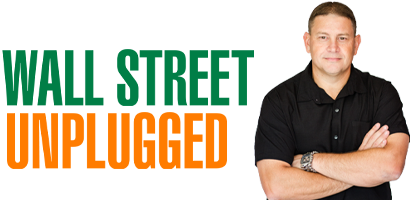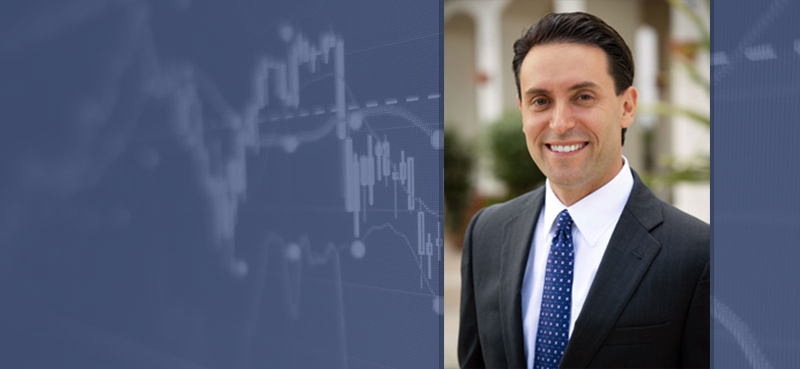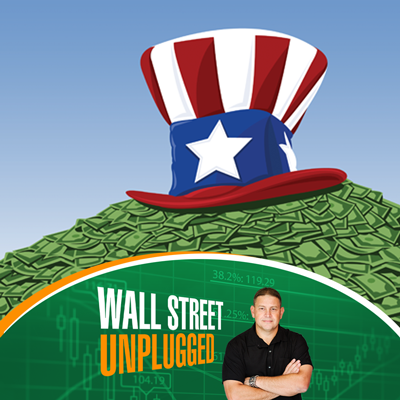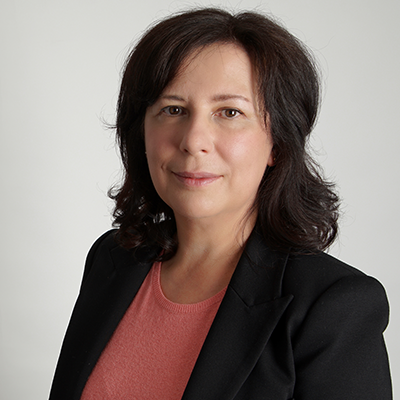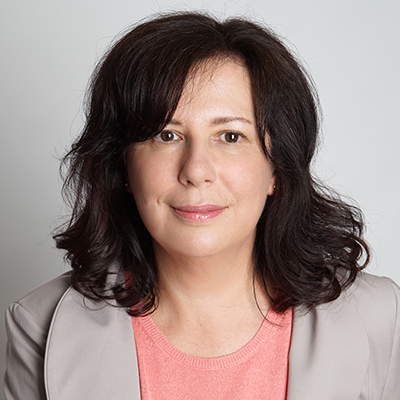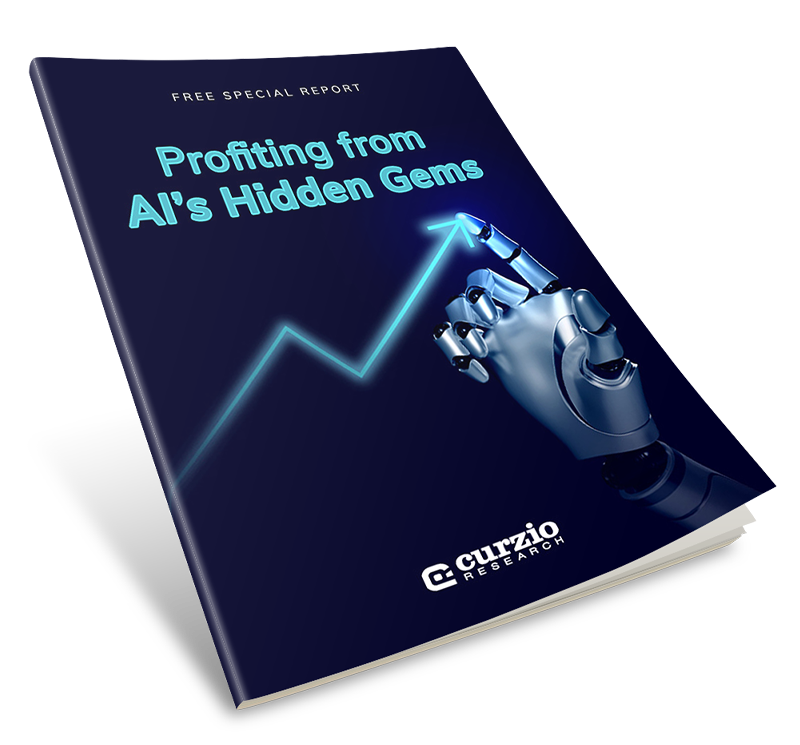Andrew Horowitz, president of Horowitz & Company and fan-favorite guest, joins me to discuss the volatile market… and why you shouldn’t worry about the debt ceiling debate. [0:46]
He explains why investors need to pay attention to who has pricing power this earnings season… and why investors are losing confidence in the Federal Reserve. [4:10]
Next, he shares how investors should position themselves for the risks in the market… why supply chains are being disrupted by COVID… and how complications in manufacturing and trucking could lead to an economic slowdown. [7:48]
Andrew also gives his thoughts on the Fed’s game plan going forward… why the coming “taper” may not mean what most investors think… and why the Fed can’t simply print money forever. [11:25]
He urges investors to lean towards value stocks… reveals some names that could suffer as the economy reopens… and shares his favorite ideas right now. [18:10]
- Don’t worry about the debt ceiling debate [0:46]
- Why investors are losing confidence in the Fed [4:10]
- How to position yourself for market risks [7:48]
- Why the coming “taper” may not mean what you think [11:25]
- Why investors should lean towards value stocks [18:10]
Wall Street Unplugged | 804
The Fed can no longer save us
Announcer: Wall Street Unplugged looks beyond the regular headlines heard on mainstream financial media to bring you unscripted interviews and breaking commentary direct from Wall Street, right to you on main street.
Frank Curzio: What’s going out there? It’s October 7th, I’m Frank Curzio, host of the Wall Street Unplugged podcast, where I break the headlines and tell you what’s really moving these markets. So, we got a great interview set up for you with the one and only Andrew Horowitz, who is the president founder of Horowitz & Company, who’s a currently smart analyst, also incredibly handsome. He has, I don’t want to say the second best podcast in the world, or the first, called Disciplined Investor. Andrew, how’s it going, man? How’s everything?
Andrew Horowitz: Hey Frank, what’s happening, man? I like that stutter step.
Frank Curzio: I know you’re sitting there listening. You know what? It’s so funny. It’s so funny because I did that. I’ve been doing this, how long have you been doing your podcast? I think I started a little bit after you. You’ve been doing it longer than me.
Andrew Horowitz: It was in 2007.
Frank Curzio: Okay. So, I think it was 2008 when I took over for Cramer and did it the whole time. Then, I worked at Stansbury, they wanted me to do a live broadcast there from a podcast, right? And I had a guest on. It was Stephanie Link at the time. And I started it and I said, “Frank Curzio, Wall Street Unplugged, where I break the headlines and,” and the whole fricking crowd was like, “Tell you what’s really moving with the markets.” I’m like wow. They actually like this. I guess I got to keep it now.
Andrew Horowitz: You’re like a major rock legend that all he has to do is point a microphone in the way of the audience, and they start singing the song.
Frank Curzio: I don’t know about that but I hear you. I hear you. So, let’s get right into it here. I mean, the markets are really all over the place. I’m sure you’re getting, just questions from clients. I’m getting questions from subscribers and it’s tough to see because we’re not getting that quick move down and then by the dip. It’s 500 here, 500 there, up down, now September was the first month out of the last seven that the market went down, but we’re seeing some real indications of things where the foundation is cracking a little bit. I mean, the tenure is obviously rising, you’re seeing ever grand was an issue. Supply chain issues are definitely for real and getting worse. Inflation through the roof, labor shortages; but yet, there are companies that are able to pass on these costs and have pricing power.
Frank Curzio: It seems like a very confusing market to most people where they’re nervous, which sometimes is a good thing. Everyone’s not leaning to one side of being bullish or bearish, but there is concerns out there. And I don’t want to see how are you handling this and what are your thoughts on what’s going in the markets?
Andrew Horowitz: I think one of the big things that we have to understand and recognize right now is some of the reason we’re seeing this volatility is that we are one again in that timeframe, when you have all these Congressmen and Senators, and everybody involved in government looking to get the limelight ahead of the sausage making process, until I think every single person in Congress, and maybe even government goes in front of a microphone, I feel like we’re not going to see an end to this whole thing. Right now, the big debate without getting too political is really all about politics. It’s not about whether or not we should increase the debt ceiling. Everybody knows we should increase the debt ceiling. This is not a question, but the political gamery and what’s going on, pushing the Democrats to move towards a simple majority is going to set the stage up for the Republicans.
Andrew Horowitz: When in fact, if in fact they win back the Senate, at least to a point where we are today at kind of a slight advantage, having then the ability to do so, because now it’s, well, you did it, you did it, now we could do it. So, what’s happening is this push me, pull me. And this whole market movement is all based on this big concern, where Jan Yellen said, “Hey, you know what? If we do not increase the debt ceiling in the next two weeks, we can go through a default.” That’s not going to happen. We know that. The problem is that the shenanigans that are being pulled by the government every single time there’s some kind of an action like this, the same thing happens. It doesn’t change earnings. It doesn’t change economics. It just causes a lot of problems and consternation.
Andrew Horowitz: Earnings are the big problem right now, as you mentioned at the top where you talked about inflation, I think that’s really what we should be getting into, the idea of whether or not the excess cost can be passed on. And whether or not it is inflation due to blank supply or demand or combination is really the big issue right now. And I think that really the supply chain thing is really the nuts and bolts about what’s happening with prices. And that’s a big concern, and that’s going to play out because we have significant amount of earnings expectations that are built in right now. Because when you add that all together, and then one more thing that’s cherry on the top, Frank, is the loss of confidence in the Fed. The confidence is have been lost slowly but surely over time when they just kept on telling us that, no, don’t worry about it.
Andrew Horowitz: We can keep on pumping money in the system. It’s not going to be a problem for inflation. Oh, there’s a little inflation, but it’s transitory. Oh, maybe it’s not as transitory. And then finally, oh, and by the way, some of the gang here has been trading on the news and the information that we know about. And even though they shouldn’t be, there’s a conflict of interest. So, confidence in the Fed, which a mainstay of any of the market movement right now, because a lot of what we’re doing is fueled by the Fed, I think is really hurting investors right now.
Frank Curzio: All great points. Let’s take, I don’t get to one at a time, but one of the biggest issues, I think when you’re saying earning season, we’re getting to the holiday season, right? The holiday period. Right now, inventory levels are incredibly low. You’re seeing fights for container ships. We saw Coca-Cola just announced yesterday that they’re changing from container ships to dry bulk cargo, which is amazing. Right? That is amazing. When you think about it and they’re saving cost even though dry bulk prices are up five X at 5,000 right now. And you’re looking at container ships are what? 2000 a year ago. And they’re over 14,000 or something like seven X, right? So, they are saving money but you-
Andrew Horowitz: I have friends that are paying 21,000.
Frank Curzio: I mean, we all have great sources in this industry, if you do have net we all, but if you just talk to these people and listen to people who are in this industry, it is insane. You look at the holiday period is supposedly the greatest money generating, revenue generating, not so much earning to all the discount sometimes, but that’s a major period for these companies. How are they going to get the supply? And is it something we need to worry about? Because we’re seeing it, where I’ve seen just in the past three to four weeks, I’m talking about 3M, GE, Honeywell, tons of companies say, listen-
Andrew Horowitz: Nike, Walmart, right?
Frank Curzio: Sherman Williams. I mean, you keep going. You got FedEx. All has happened in the past three, four weeks. And it just leads me to believe that this is a much, much bigger problem than I think everyone believes right now. It’s going to result in uncertainty, which the markets hate uncertainty. So, how do you play the market going in? Because buying something right now, if they come out and warn which we’re seeing, right? We’re seeing companies miss estimates and warn right now, the warning period. It’s hard not to warn because it’s just on the safe side, be like, hey, we might not. Look what Delta did. Delta warned a month ago and then this month they raised their estimates back and said, hey, demands back. Right? So, if you warn these evaluations-
Andrew Horowitz: And then the airlines were just downgraded.
Frank Curzio: And the airlines downgraded. It’s confusing as hell, I agree with you. So, how do you position yourself say as an individual investor? I mean, do you buy into this market? Do you take small positions? Because right now it seems like for a risk standpoint, it’s very, very, very dangerous.
Andrew Horowitz: Well, I think the market has to be split up though, that’s the big issue. Right now, retailers, for example, you have a situation going on in Vietnam where the COVID lockdowns have shut down a lot of factories. The only way that you can actually work is if you go and live in the factories. Now, over time, if you remember what happened, we shifted our production of things like shirts and cotton wear and things of that nature from China to Vietnam, right? We moved them because we felt that it was a lot more beneficial for pricing. When we moved this whole block was all excited about Vietnam, and now Vietnam is shutting down. What happens? What happens is you don’t get your clothes out of there. And the problem for companies like the Gap, and Old Navy, and Walmart, for that matter.
Andrew Horowitz: And other places that get their imports from in Indonesia, Malaysia, Vietnam, and Cambodia, that are having problems with production. Add that to the fact that even if they did get that container out, which now costs the final selling company, the retailer, much more money due to the fact that the container prices are more expensive. You get to the port of Los Angeles and you’re waiting. You’re stacked up 80 boats deep because there’s not enough truck drivers, which is bizarre, by the way. The whole thing about what’s going on in the supply chain is from bizarre land, right? The school children that can’t get to school because many of the people that were laid off decided to maybe start working for Amazon or Uber and there’s not enough school bus drivers. The same thing that you don’t have truck drivers that got into different places when they were out of the job for a while.
Andrew Horowitz: So, the problem with the restart of the economy is very uneven what they say, it’s because it doesn’t necessarily just go from off to on. Some of the things are just not there. And when you look at the problems that you’re mentioning, and while I may want to go and buy a particular, I don’t know, shirt or suit, it may not be there because of all of this. Therefore the store doesn’t get the revenue and I’m not necessarily going to just buy something else in this place. So, there is the potential for a slow down due to the fact that there’s no supply and that’s a problem.
Frank Curzio: So, that’s just one of the problems. What is the Fed’s playbook right now? Okay. Because this is one of the other things, with the Fed and the supply chain issue. Because the supply chain issue is causing inflation so it’s hand in hand. What’s the Fed paper? And listen before you respond, because the Fed right now has a choice where, okay, no tapering, keep rates low. Inflation, your risking inflation getting out of control, especially if we pass the infrastructure bill, right? Because I have no idea how, you can’t ship anything right now. Imagine world material price is going through the roof. We’re seeing it one by one by one. Right now, it’s cotton. It was lumber. It’s everything, everything. Or, do go ahead and taper and also start raising rates because that’s going to have an environment where you’re still going to see inflation. But now, you’re going to see very slow, growth’s going to slow, right?
Frank Curzio: So then, you have stack inflation, which is a major concern, but what’s the Fed’s playbook here? Because it sounds like they’re praying that wow, we thought it was going to be transitory. We know it’s not transitory. What are we do? And I don’t know what they’re going to do, because this is a one solution. If inflation gets, that’s the one thing that Fed can’t control by throwing money at it, right? They could bail out anyone they want like the did in the past, but this is a one thing where you have to do the opposite. You have to take money out of the system. You have to raise rates. You’re going to see massive de-leveraging, liquidity come out of the market. It’s going to be insane. It’s going to be insane where risk off, right? Risk off environment, a lot of companies could get hurt, but I’m curious to know what’s the Fed playbook. I don’t know what they’re going to do. And the longer they wait, they back themselves in the corner. Here you go.
Andrew Horowitz: I have an announcement.
Frank Curzio: You know it.
Andrew Horowitz: I have clarity. I have clarity, I’m not kidding about this either. Every once in a while you have clarity on a few, it hit me only a couple of days ago. Seriously. When I heard one of the Fed speakers talk about that they’re going to start to taper and they were going to plea the tapering by mid-, to let’s say the mid-part of 2022… That’s what they said, right? I’m thinking to myself, they’re going to taper. They’re going to go from where we are at 120 billion per month right now, and they’re going to start moving over to tapering and turning off quantitative easing by the middle part of 2022? How does that work? And then, I realized something. They’re talking about tapering, tapering. It’s going from thing big to small. Taper your pants: It goes from the wide leg down to a small leg.
Andrew Horowitz: And what they’re talking about is tapering not discontinuing. The taper may only be $20 billion of total asset purchases that they reduce down $5 billion per month over the next four or five months. You follow what I’m saying here? They will continue because they don’t know how to do anything but, and they have to due to the fact that the government is issuing this much debt, they’re going to continue quantitative easing. They’re going to taper in the taper program, which is just a small reduction will be done very slowly and it will be just a small amount. I’m probably figuring they’re going to go down on the outsides, $40 billion a month to get in line with what they were doing during the financial crisis of $80 billion a month. That’s what I think they’re going to do.
Andrew Horowitz: It’s not going to be a, which is still enormous. And I don’t think that’s going to slow down the economy that much. It will create a liquidity issue for certain areas, but I think that will have the impact of actually benefiting markets in the long run. Not allowing them to get over the top bubbly.
Frank Curzio: And the reason why this is important, right? Because we’re talking economics here is, it’s a top down approach because if you could figure or try to figure what the Fed’s going to do, because we know a lot more than the Fed. We see it real time. A lot of these guys at the Fed, a lot of these guys on TV, they’re on TV all the time. They’re hanging out in rich circles. They don’t see the labor shortages. Your favorite places are now closing. They’re not even operating 80% capacity, and you’re waiting there all day. They’re closing because they can’t get people to work there, right? So, we are seeing prices through roof everywhere. We know that. But if the Fed does start tapering or if we see inflation you to go out of control, I mean, we’re kind of seeing it now, right? What are the areas financials do good in hiring straight environments.
Frank Curzio: We’re seeing inflation with at the beginning right here with oil prices really taking off. And then you’re also seeing the hit in technology, which is showing inflation because these are the guys that generate the most money from the CapEx spending from everyone else, right? Their margins already high so they can’t cut their margins like cyclical companies. So, people say why are technology companies directly impacted? Because it affects the advertising budgets. It expects capital spending the CapEx across the board and these companies, as rates rise are going to have to shrink their budgets, which means less money’s going to go to advertising on Facebook. So, all these tales are telling us inflation, are these the places that we need to buy or is this how you are positioning yourself? Or is it more than that?
Andrew Horowitz: So, we have several different strategies, right? We have kind of a long short strategy, which by the way, we’re using cash as a buffer because it’s almost impossible to hedge out a portfolio right now of positioning when you have a market that’s up 500 one day, down 500, down 300 midday, up 400, then back down to even by the end of the day, right? And these are all signs of late stage, late stage market madness, along with what’s going on with the Congress and the Fed. I think you have to lean if you’re in a diversified approach and you’re thinking about protecting for inflation, as we do in our global allocations, for example, as we do with investology, which is diversified portfolio, you lean towards the value for a 100 different reasons.
Andrew Horowitz: One being that they have underperformed for last five years and the catch up trade is almost inevitable, which is happening with energy. Look, if you don’t think that all of this is inflationary, look what’s happening with oil. There’s not a supply issue or demand issue. It’s simply the fact that there’s speculative action going on. OPEX is not pumping anymore. And even though we know that the need for oil has severely been reduced and cut by airlines not flying, cars not really out, the trucks are not so much out there. We just talked about the ports and all the things that are going on. It’s insane that we have that. Brent is over 83 and WTI is what? 76 and change. And natural gas has doubled this year, coal price is through the roof. I mean, all of this that is going on is the excess amount of liquidity in the markets and the inflationary environment that is right in front of everybody’s face.
Andrew Horowitz: The Fed won’t admit it. Their job is not to admit it, their job you’ve been around, Frank. Let me ask you something, when’s the last time you saw the Fed say, “Things aren’t looking so good.”
Frank Curzio: Actually. I think I hear a lot of CEOs say that often until recently about everything, but everyone always talks positive about their company and they say, oh, that’s only talking to CEOs, and I’m a CEO the same way you’re going to talk about the positives. But you’re right. You don’t see them especially in the political world as well, right? They’re not going to backtrack and say, “Hey, we got this wrong.”
Andrew Horowitz: How things? Miserable. Every client has left me, it’s terrible. Hey, why don’t you do business with me? That’s not how it works, right?
Frank Curzio: Yep.
Andrew Horowitz: You don’t see that.
Frank Curzio: Never. No, never backtracking. So, okay. Let’s get into some of the positions here. So, you did offer some speculative positions last time that didn’t work out as well. You have one of the best performances being on this pocket for such a long time. So, you going to get some wrong, some right. That’s okay. It was workhouse in Didi. I kind of like Didi. I thought he would-
Andrew Horowitz: I hate to interrupt your show. Sorry, Frank. But you can interrupt my show anytime, but I did say these were highly speculative. These were kind of one off specialties. I said these are kind of these wild cars and it was, if one thing goes right, they could do really well. And there was a little pop on the beginning, but yes, those sucked.
Frank Curzio: And look, I mean, it happens to all of us, right? If you look at your track record of being on this podcast, it really is incredible. And I know you’re always fair because you actually brought that up and said, hey, I mentioned this last time and that’s what I love about you, right? Because for me too, I like addressing my losing ones and my winners. That’s when you learn the most. But now you’re looking at this environment, everything that we talked about, what are some of the areas you’re looking at? Individual names which you love giving out. What are some of the things that are attractive going into an earning season that’s kind of a little scary right now?
Andrew Horowitz: So, a couple of thinner traded positions that are interesting and if you think about everything and you agree with what we just talked about, the higher cost for commodities and goods, the problem with supply chains, the problem with Asia, that all I start thinking about where’s that all go? Well, get companies like a Wayfair or an RH, Restoration Hardware, the furniture companies, they’re smacked out in the middle of problem zone. So, it would seem to me that there’s a lot of pain ahead for these guys, and if we have a slowing economy it even gets worse. If we have a reopening, Wayfair maybe not selling so much furniture to do a pop up office in your house. And even though their margins are high because their furniture is awful. Okay? Cheap. They mark it up. I don’t think, maybe once or twice, but generally, anything I’ve ordered from Wayfair, I’ve either sent back, or they said don’t bother sending it back; just keep it.
Andrew Horowitz: If something’s broken, or chipped, or warped, I’m not kidding about this either. So, they obviously have, and I could tell you a lot of people talk to your friends and ask them, hey, have you ever tried to return something to Wayfair? What do they do? They just say, keep it, or they’ll send it back to you and give you 50, $100 or often send you another one, something crazy like that. So, they obviously have pretty good more margins when it comes to what’s going on with that. RH also the opposite side of the spectrum, really great furniture, extraordinarily high prices. And Ottoman’s like five grand. You’ve been in there, right? RH?
Frank Curzio: Yes. Yes, of course.
Andrew Horowitz: How much can people buy after a while? And if there’s a supply chain in as you’re getting it, that’s a problem. On the other side of it… So, that’s kind of some short ideas. On the other side, kind of Netflix really knocking it out of the park with the fact that they’re continuing and have the ability, their pricing power. Think about it. If Netflix does a $1 a month, 50 cents a month, a $2 a month increase in your fees, what are you going to do?
Frank Curzio: Nothing.
Andrew Horowitz: And it’s kind of like a frog boiling in a pot. Unless they do something absurd, but even if they went $5 a month, what are you going to do? Nothing.
Frank Curzio: Nothing. Nobody’s going to cancel. And the pricing power that they have is incredible. They do. And I don’t think Disney has it. Disney doesn’t have it because the new content isn’t coming out in that platform. They were just like, let’s add as many subscribers for free as we can. And people bought into that model. Now, you’ve seen it slow down. But when I look at streaming, when I look at Netflix, there’s this one difference. The major actors, actresses love it. They all come away loving it, saying this is the greatest experience. And they lock them in, and they give them whatever they want, and they treat them great. And they all love that platform where they have amazing new content. AT&T is another one, where both of those guys spending $20 billion a year on new content and Disney. I mean, their cash flow is still terrible.
Frank Curzio: It’s still getting impacted with international travel and stuff. But they don’t have that constant cash flow coming in, especially like at 18T, which has $30 billion, $27 billion in free cash flow coming in. But when I look at Netflix, just a clear winner, Reed Hastings is the most competitive guy you’ll ever know. I remember when he took down Blockbuster. They went to Blockbuster during the credit crisis, and they were looking to get sold, and they were laughing at them. And then, he wanted destroy… That guy’s one of the most competitive… That’s why when Disney comes in, he goes on TV. He’s like, oh, it’s good. More people get into our markets. That’s not, that’s no… He’s like, we’re murdering these guys, and we’re going to bury them.
Andrew Horowitz: More fun, more blood.
Frank Curzio: And that’s what I like about them. But Netflix is just, I mean, Squid Game, right? I haven’t seen it yet. I’ve been watching, is that good?
Andrew Horowitz: Yup. I’m in episode two, I think it’s entertaining. The idea that you go in and play a game, everybody knows the basic principles. If go in and play a game and unbeknownst to you, it’s just kind of we’ll either create incredible freedom and financial security for you, or you’re going to die. So, it takes you through life and gets you close to some of the people; kind of an interesting story. And the one difference also is, you mentioned that Netflix, the actors really like, and the people that go, they come away saying great things, as opposed to Disney, where they sue them. They sue Disney.
Frank Curzio: And not only did Scarlett Johansson sue Disney, but Disney came out and trashed her. They were just, well, you should have more respect for COVID. I was like, whoa. You do not do that. She’s extremely powerful, right? I mean, that’s a powerful actress in Hollywood, man. You don’t want to that person off, but there is one more name.
Andrew Horowitz: Two other things.
Frank Curzio: Go ahead.
Andrew Horowitz: There’s two other real quick, one idea. A genre, is CRISPR technology, CRISPR editing, the biotech area. We’ve seen a lot of moves of companies that we’re doing the vaccines, et cetera, and the mRNAs and all that. And Pfizer BioNtech, et cetera, but I’m kind of digging the whole. And I’ve liked this for a long period of time. They have a lot of opportunity. If you look at the fundamentals, you’re not going to really find anything right now, but if they make a hit, which they’re kind of starting to get some things going on here, two companies Edit, E-D-I-T, and CRISPR technology, C-R-S-P-R are interesting. And finally, the one that you think you want to talk about is a firm. Now, we talk about the shopping situation. We talk about what’s going on.
Andrew Horowitz: A firm entered into the old world of installment payments. That was back in the days when you’d buy a suit or whatever from Macy’s, right? You’d go and you’d say, well, put it on layaway. I’ll pay you $20 a month. I’ll pick it up in six months. That’s great. Or, an installment plan where you could actually take it and they would do this. Now, MasterCard and Visa have had this for years, but it wasn’t as cool. It wasn’t as workable where you could have a zero interest rate on very short term loans. The retailers love this. Amazon recently made announcement they’re bringing a firm in a firm. You could do a buy now pay later. Or the fancy way to say is BNPL, is a way to do it. A firm basically gets a cut of the deal from the retailer up whatever’s negotiated.
Andrew Horowitz: They also get potentially some money up from 0% on some items and some agreements to 10 to 30% on longer installment plans. It’s a micro lending platform essentially for specific goods, and it’s not backed by anything. When you buy it, it’s just a signature. They’ll do background checks. They have great algorithms. And today, or yesterday, I guess it was… Yes, yesterday, the announcement came late, but Target is now using a firm and the stock is jamming up as well. You got great earnings that came out, Amazon, Target, and it’s not like Walmart would say, “Oh, Target’s using a firm. We’re not going to.” Other companies, even competitors can use a firm because the theory is I can go in and say, oh, I have $100 to spend today, online on something. I’m going to buy a skirt or I’m going to, not me, but my wife, or I’m going to buy a certain item that I want for fishing. And I have $100.
Andrew Horowitz: Well, all of a sudden that 100, I could spread out because, well, I was going to spend a 100, but I’m going to spend 400 because I’m going to pay 100 a month for four months. Right? And this is why a lot of the players want this as opposed to, okay, of course they could spend more on MasterCard and figure it out on their own, but they could put a little thing on there and say only pay $25 a month for the next four months, click this button. And it’s a seamless transaction, A-F-R-M just added more to my client portfolios this week.
Frank Curzio: Okay. So, there’s usually a format, whenever we’re going on the podcast, we’ll just send bullet points to say, hey, this, this, this, this the things that we’re talking about and you send some ideas. One idea that you didn’t mention that you had on your list was a company that I have to tell you that I’d never heard of before, and it’s Asana. And this is a pretty amazing company where productivity platform. I never heard of this company before. It has a 20 billion valuation. I’m looking at this freaking chart. Holy cow, I guess it’s because it must IPO-
Andrew Horowitz: IPO is right.
Frank Curzio: In 2020. But man, I mean, this is just interesting. I love to just to see them move. And of course, it’s come off like most stocks in the past month or so. But just to see this move here, it is pretty incredible. Is that a name that you see you’re looking into? But I like just new ideas I never heard of. But what these guys do enable teams to orchestrate work, basically increase productivity. Obviously, this is a platform that’s working because you’re seeing more demand. You’re seeing earnings explode and you’re seeing that stock price follow.
Andrew Horowitz: So, this is one of those stocks and one of those companies that I’ve actually used their product for a number of years, and it was too dumb to buy it on the IPO kind of thing. Right? Because they really didn’t have earnings, et cetera. You know all the different things that go into that play, right? Let’s see how it plays out. And then you saw that chart it was like a moonshot. So, Asana is a great product. It’s used by a lot of developers and other teams. Basically what you could do is something like this. Let’s say that you and I have a particular project that we’re working on. Let’s say this podcast: Every time that I come on the podcast, you give me, it’s the Horowitz Curzio podcast. And every time you want something there, you put a little note in, okay, here’s your assignment, whatever. You can spec it out.
Andrew Horowitz: You can use calendaring and all that. Inside, very simple to use. Track all of that. Maybe I put some notes up there, a screenshot up there, all of that is just dedicated to our work environment on this podcast cast, right? So you say, hey, we’re coming on tomorrow. What graphics, which things you want; I upload it from my desk. You get it. We can have multiple people on the same team. We can complete it. We can post it. We can postpone it, under the project to add more tasks. I use that with all the developers I work with, and it really works well. I have a five-person… And I don’t pay anything. It’s five people you get for free. Under five, I guess.
Frank Curzio: That’s pretty cool.
Andrew Horowitz: Good project management. You got to get used to it, but once you do, great product. I think it’s a great buyout candidate, and that’s why the stock’s moving rather than just the underlying fundamentals.
Frank Curzio: No, it definitely makes sense. So, as always, love the ideas. We have one minute, just one minute left. So, I always love giving you time to talk about your company. If people want to get in touch with you, how could they do that?
Andrew Horowitz: Well, let me, hang on.
Frank Curzio: Oh no, I was coming off to put your website on, but I just say that.
Andrew Horowitz: You ready? There you go. There’s the mustache, Frank.
Frank Curzio: I love the mustache. I love the mustache so much. It’s so awesome, man. It’s so like Tom Selleck, I love it. Most of you know that we have our YouTube channel, but that is so awesome. But The Disciplined Investor, love the book. Love it. And then I have your website up right now, so disciplinedinvestor.com.
Andrew Horowitz: Basically, if you want to work with us, we have a variety of different strategies and programs available from Investology, which starts at $10,000. Diversify, use a band of different range of risk, our TDI manage growth strategy, which is traditionally a long short right now. We’re leaning on the long side, generally speaking, with the buffer and our global allocation. So, it’s all there, and you can check that all out over on that. Yep. It gives you all the stuff there and how to get in touch with us. Plus the podcast, of course, the agent plug Tuesday nights, live and on your favorite podcast catchers, as well as The Disciplined Investor, that’s been running for 14 years now.
Frank Curzio: That’s incredible.
Andrew Horowitz: And second to only one, which is Frank Curzio’s fantastic podcast.
Frank Curzio: I know we met that long ago, right? We talk about podcasts. When you tell people you say you have a podcast, it’s big. I got one too. I’m like, no, no, no. We have a podcast for 13, 14, 15 years. And now everybody has one. It’s so funny. Everybody asks me advice, I’m sure you get it too. And I tell them all that. I’m going to tell you exactly how it works and how you can stay on long, but you’re not going to do it. And sure enough, they’re gone in a couple months.
Andrew Horowitz: A lot of work, a lot of work.
Frank Curzio: It’s a lot of work. It’s a lot of energy. It’s getting on good guests. It’s staying ahead of the market. It’s being original. But it requires a lot of time and commitment. I love it. I know you love it, but if you don’t love it and you’re just trying to do it, it never works. Right? It never works for anything. So, love to see that we’re both in this game and thanks for coming on, man. You know I love you. We’ve been friends with very, very long time, love all the ideas. And if you do happen to go on that amazing trip, I thought it was a guarantee, but you maybe heading to Egypt, not too sure. Hopefully, you are. It’s going to be awesome. Definitely enjoy that, and I’m sure I’ll talk to you even before you.
Andrew Horowitz: And I just let you know around the corner, Frank, around the corner is sailfish seasons about to start up. Have you caught a sailfish yet, Frank?
Frank Curzio: No, but I’m definitely coming to your house. I’m sick of you sending me these massive, massive fish all the time. And I always see them, and I’m like, man, I got to go. I got to go. So, yes it is-
Andrew Horowitz: Just to say, where do you get your sailfish, Frank?
Frank Curzio: No, definitely. I’m definitely. When does it start? When does the season start?
Andrew Horowitz: Well, it wouldn’t be for where you are. But up here, we officially call it when the first cold snap happens. The day that you walk outside, you go, wow, it’s kind of cold out. That day is the start of sailfish season.
Frank Curzio: Awesome.
Andrew Horowitz: It’s probably mid-November.
Frank Curzio: All right. I’m in. I’m definitely in. Seriously. I’m definitely in.
Andrew Horowitz: I’ll get you there.
Frank Curzio: All right, man. Thanks so much for coming on. Guys, thanks. Thanks buddy. That’s it for me. Questions, come through my email at frank@curzioresearch.com. That’s frank@curzioresearch.com. Really appreciate all the support, and I’ll see you guys next week. Take care.
Announcer: Wall Street Unplugged is produced by Curzio Research, one of the most respected financial media companies in the industry. The information presented on Wall Street Unplugged is the opinion of its host and guests. You should not base your investment decisions solely on this broadcast. Remember, it’s your money and your responsibility.
Editor’s note:
Focusing on value doesn’t mean you have to sacrifice big upside…
In her Unlimited Income advisory, Genia uncovers assets that deliver market-beating dividends… AND quick capital gains…
Just this week, she recommended two turnaround trades… including the best play on COVID today.
Join risk-free for 30 days—and get immediate access to the portfolio.



